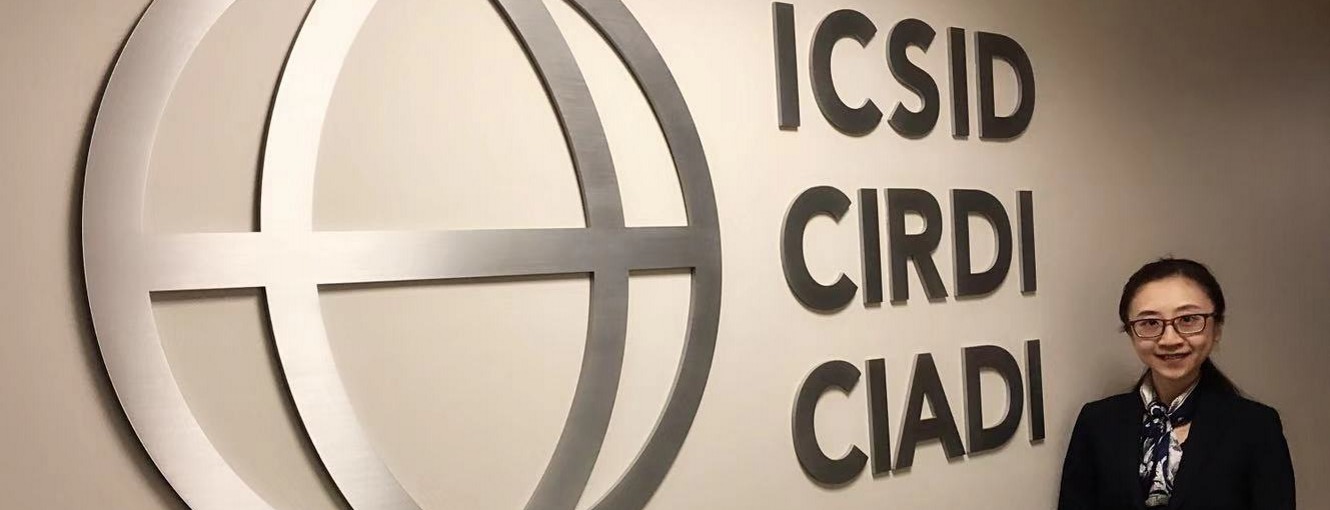A couple of weeks ago, CESL Assistant Professor Monika Prusinowska and CESL alumna Zhao Chunlei connected over e-coffee to chat about what Chunlei has been doing after she graduated from CESL. Read about Chunlei’s inspiring story!

Monika Prusinowska [MP]: Tell us what you do currently and how the last couple of your years out of China have looked like?
Zhao Chunlei [ZC]: I graduated from CESL in 2015. After that, I spent three months in Cambodia with the Vis East Capacity Building Project, working as a Vis Moot coach for two local universities.
Since the beginning of 2016, I have been working on a PhD project at Maastricht University in the Netherlands, under the supervision of Prof. Peter Van den Bossche and Dr. Denise Prevost. During the past three years, while doing legal research and drafting my thesis, I have also attended many international conferences, presented own topics and exchanged ideas with scholars from all over the world. In 2017, I spent one year at the Max Planck Institute for Procedural Law in Luxembourg as a visiting scholar. Earlier this year, I did a four-month internship at ICSID, the leading global institution for investment disputes, and now I am a visiting scholar at the Max Planck Institute for Comparative Public Law and International Law in Heidelberg.
MP: That all sounds very interesting! Tell us specifically more about your experience with ICSID.
ZC: International Centre for Settlement of Investment Disputes (ICSID)is the world’s leading institution devoted to international investment dispute settlement. It was established in 1966 by the Convention on the Settlement of Investment Disputes between States and Nationals of Other States (the ICSID Convention). Now the ICSID Convention has 162 member states, and China officially joined it in 1993. ICSID is an independent, depoliticized and effective dispute settlement institution with extensive experience in the field of investment dispute settlement. It has administered the majority of all international investment cases in the world. States have agreed on ICSID as a forum for investor-state dispute settlement in most international investment treaties and in numerous investment laws and contracts. To illustrate, there have been ICSID investor-state arbitration cases where China as a state or a Chinese investor have been involved.
I worked as an intern for the English team within ICSID. My work there was divided into four categories: conductinglegal research on specific issues, drafting working paper for specific cases, participating in special projects (such as ICSID transparency project), and providing assistance in administrative work, like organizing conferences.
MP: What is the topic of your PhD and how is this relevant for the China-EU context?
ZC: My PhD is about the dispute settlement system in the prospective China-EU Comprehensive Investment Agreement. China and the EU officially started the negotiations in 2013 and up to now, there have been 21 rounds of negotiations.My research aims at exploring the dispute settlement mechanisms in this prospective treaty, including China’s and the EU’s proposals, the potential thorny issues and proper solutions. My analysis is based on the study of both parties’ approaches in other international investment treaties and more generally, in the field of international economic dispute resolution. It also explores the different legal cultural characteristics of China and the EU regarding dispute settlement in order to better understand the values each party is attempting to protect through such mechanisms.
The conclusion of the China-EU investment treaty would, with no doubts, facilitate the investment flow between the two parties, further their economic ties, and probably serves as the basis for a more comprehensive economic treaty.
MP: Tell us how the China-EU School of Law assisted you in preparing for the tasks you are dealing with now?
ZC: My study at CESL provides me with necessary skills, such as English skills, legal research, analysis and writing skills, as well as the ability to work under pressure and cope with stress. These skills have been necessary for me to finish all my job-related tasks in the past.
More importantly, CESL opened the door to the world for me by letting me see more opportunities. All has contributed: Chinese and foreign professors, study of Chinese as well as European and international law, going to Europe to attend elective courses, participating in international moot court competitions.
At the same time, I got to know excellent people at CESL. During my three-year study, I met inspiring classmates, who have become not only my life-long friends, but also role-models inspiring me to pursue my goals.
